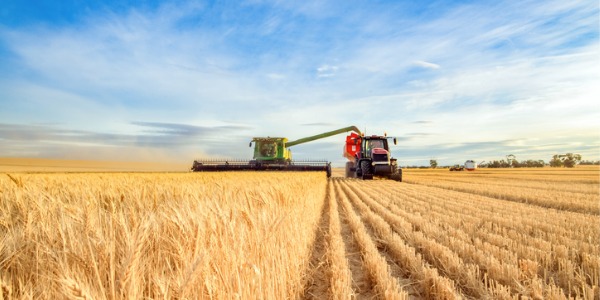What is a Crop Farmer?
A crop farmer is involved in the cultivation of various crops for the purpose of producing food, fiber, and fuel. The job of a crop farmer involves a range of activities including land preparation, planting, crop management, and harvesting. The type of crops that a crop farmer grows may vary depending on the climate and soil conditions in the area, as well as the demand for certain crops in the market. In addition, crop farmers may also be responsible for managing pests and diseases that may affect the growth and quality of their crops.
Crop farming is a vital aspect of agriculture and plays a crucial role in the food supply chain. Crop farmers contribute to the production of a variety of crops including grains, fruits, vegetables, and oilseeds that are used in different food and non-food products. Additionally, crop farming also provides a livelihood for many people, especially in rural areas. Crop farmers may work independently or in partnership with others, and they may also collaborate with agricultural researchers to develop new and innovative farming techniques that can improve crop yields and sustainability.
What does a Crop Farmer do?

Crop farmers are incredibly important for sustaining human life and supporting the global economy. They produce a wide range of crops that serve as essential components of our diets, including grains, fruits, vegetables, and nuts. Additionally, crop farmers contribute significantly to the economy by creating jobs, supporting rural communities, and generating income through the sale of their crops. They also play a crucial role in maintaining the health of our planet by using sustainable and environmentally friendly farming practices that help to reduce pollution and preserve natural resources.
Duties and Responsibilities
The duties and responsibilities of crop farmers can vary depending on the type of crops they are growing and the size of their operation. However, some of the most common tasks that crop farmers are responsible for include:
- Land preparation: Crop farmers must prepare their land for planting by clearing it of debris, rocks, and other obstacles, and tilling the soil to create a favorable environment for plant growth.
- Planting: Once the land has been prepared, crop farmers must plant their crops either by hand or using specialized equipment. They must also ensure that the crops are planted at the right depth and distance from one another.
- Crop management: Crop farmers must manage their crops throughout the growing season by performing tasks such as watering, fertilizing, and controlling pests and diseases. They may also need to monitor weather patterns and adjust their farming practices accordingly to ensure optimal crop growth.
- Harvesting: Once the crops are mature, crop farmers must harvest them using specialized equipment or by hand. This may involve cutting, picking, or threshing the crops and then storing them until they can be transported to market.
- Marketing: Crop farmers must market their crops to buyers such as wholesalers, retailers, or processors. This involves determining the best time to sell their crops and negotiating prices and terms of sale.
- Record-keeping: Crop farmers must keep detailed records of their farming activities, including planting and harvesting dates, crop yields, and expenses such as equipment purchases and labor costs.
- Research and innovation: Crop farmers must stay up to date with the latest farming techniques, technologies, and trends to remain competitive and increase their crop yields. They may collaborate with agricultural researchers to develop new and innovative farming practices.
Types of Crop Farmers
There are many different types of crop farmers, each with its own specialties and focus. Here are a few examples:
- Grain Farmers: These farmers specialize in growing cereal grains such as wheat, corn, and barley, which are used for food, animal feed, and industrial purposes.
- Fruit and Vegetable Farmers: These farmers grow a wide variety of fruits and vegetables, which are used for food and sometimes for medicinal purposes. They often operate in more specialized markets than grain farmers, supplying grocery stores, restaurants, and farmers' markets.
- Oilseed Farmers: These farmers grow crops such as soybeans, canola, and sunflower seeds, which are processed into cooking oil, biodiesel, and other products.
- Tobacco Farmers: These farmers grow tobacco leaves, which are used in the production of cigarettes, cigars, and other tobacco products.
- Cotton Farmers: These farmers grow cotton, which is used for clothing, home furnishings, and industrial purposes.
- Livestock Feed Farmers: These farmers grow crops such as alfalfa, clover, and other grasses that are used as feed for livestock.
- Specialty Crop Farmers: These farmers grow unique and specialized crops, such as exotic fruits, heirloom vegetables, or organic produce.
What is the workplace of a Crop Farmer like?
The workplace of a crop farmer can vary widely depending on the size and location of their operation. Some crop farmers work on small family farms, while others manage large commercial operations that span hundreds or even thousands of acres.
Regardless of the size of their operation, crop farmers spend most of their time outdoors, tending to their crops in all types of weather conditions. They may work long hours during planting and harvest season, and their workload may be influenced by factors such as the weather, market demand, and crop disease outbreaks.
In addition to spending time in the field, crop farmers may also spend time in their offices managing administrative tasks such as record-keeping, marketing, and financial planning. They may also need to communicate with suppliers, buyers, and other stakeholders to ensure the success of their operation.
Despite the challenges and hard work involved, many crop farmers enjoy the sense of satisfaction that comes with growing food and contributing to the global food supply. They also appreciate the opportunity to work outdoors, connect with nature, and engage in a profession that has a meaningful impact on society.